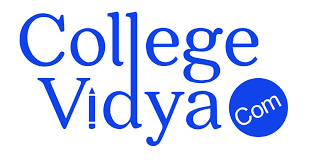Mumbai, 18th October 2024: “College Vidya, a one-stop solution for making informed online education choices, has released its latest study, “‘The Digital Education Frontier,’ shedding light on the growing awareness and adoption of online education among students and working professionals across India. This study is based on a survey of more than 5000 students delving into the advantages, challenges, and perceptions surrounding digital education, offering key insights into its potential to reshape the learning landscape.
The study highlights that the most compelling advantages of online education are the lack of geographical constraints and time-saving benefits. Approximately 82% of students and 66.2% of professionals appreciate the flexibility of learning from anywhere, while 81% of students and 71.1% of professionals value the time efficiency it offers. Other notable benefits include cost-effectiveness (69% of students and 51.9% of professionals recognize its affordability), flexible attendance criteria, and access to global faculty for both groups.
Despite the high awareness of online education, with 98% of students and 97% of professionals acknowledging its presence, only 53% of students and 46.6% of professionals have actually pursued online courses. The study also found that online certificates were the most widely recognized, with 93% of students and 85.7% of professionals being aware of them, followed by diplomas and degrees.
For working professionals, the career impact of online education is increasingly significant. Around 67.53% believe it aids in upskilling while balancing job responsibilities, and 38.96% consider it a tool for achieving promotions and salary hikes. The ability to complete courses remotely is another benefit valued by 66.23% of professionals.

The spokesperson of College Vidya said, “The future of education is undeniably digital, but there are still significant barriers to overcome in terms of accessibility and trust. Our study sheds light on the potential of online education while emphasizing the importance of providing unbiased guidance to help students and professionals make informed choices. We believe that with the right initiatives, the credibility and utility of online education will continue to grow and drive higher adoption across India.”
Despite these advantages, challenges remain. The majority of respondents are from Tier 1 and Tier 2 cities, and there is still limited access to technology and the internet, particularly in rural areas. Only 11% of the population has access to electronic gadgets, and only 24% have internet access, presenting a major barrier to online education’s widespread adoption. In addition to technological limitations, the report identifies other perceived disadvantages, such as the lack of face-to-face interaction, cited by 70% of students and 58.4% of professionals, and a perceived lack of practical exposure. Concerns over the credibility of online qualifications also persist, with many respondents feeling that online degrees do not hold the same value as traditional degrees.
The study does, however, indicate a positive future outlook. A significant number of both students (69%) and professionals (68%) expressed a willingness to pursue online education in the future. This strong interest suggests that with the availability of initiatives offering unbiased guidance and support, students will be better equipped to navigate the digital education landscape with confidence. As these supportive resources become more accessible, they will play a crucial role in addressing current obstacles and enhancing the overall online learning experience.
